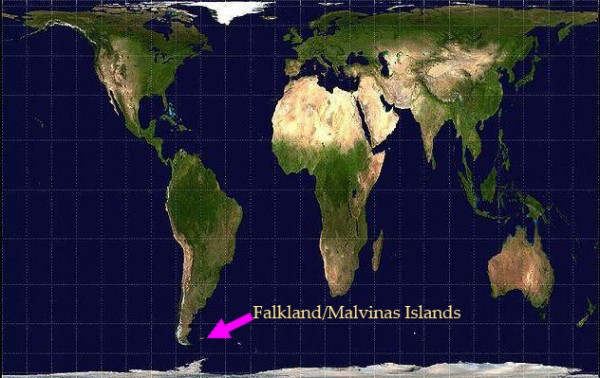We publish here the open letter from Alicia Castro, Argentinean Ambassador to the UK, to The Daily Telegraph in response to an article published by it.
ARGENTINA: FACTS AND HISTORY
On 8 October the Telegraph published an article stating that Argentine President Cristina Fernández de Kirchner “was using the Falklands Islands as a smokescreen to hide Argentina’s ailing economy,” according to “a source close to the government” that correspondent Jonathan Gilbert does not reveal. The article criticizes our government’s economic measures and oil policy as well as the strategic alliance with Hugo Chávez, described by the newspaper as “a socialist authoritarian.”
On the very same page the correspondent from The Telegraph in Caracas reports about “Chávez´s nervous wait as ballot boxes close” referring to the elections held in Venezuela that, as it was already widely known, President Chávez won with a significant lead. The superficial approach of these articles and the lack of knowledge about Latin American issues are striking. In order to make value judgements about Latin America, instead of prejudices and having an arrogant Eurocentric viewpoint, the press should use other available resources: facts and history.
On The Telegraph online edition from the same date, in the article entitled “Debt Crisis: Spain’s jobless flee to Argentina” the correspondent in Madrid reports that more than 65,000 jobless Spaniards who cannot find a position in Europe have recently decided to fly to Argentina to pursue a dignified life. In fact, these young people are choosing to live in a country that offers a better future because it has a friendly migration policy, free universities and an economy that has grown at one of the highest rates in the world for the past nine years. Neither Argentina nor Venezuela apply cuts on health, education or employment. Such austerity policies are precisely the source of public outrage, that make the ‘Occupy’ movement protest in the main European cities. Argentine economy is not led by IMF regulations, which have resoundingly failed.
The commentary from The Telegraph about our ‘using’ the Malvinas/Falklands issue as a smokescreen is insulting for Argentina and all the countries in the region that reject the existence of a colonial enclave in the South of our continent. The claim to peacefully solve the controversy is supported by the international community.
The late British historian Eric Hobsbawm, in an article published in 1983 called Falklands Fallout, stated that: “Since the government and everybody else found the Falklands totally without interest, the fact that they were of urgent interest in Argentina, and to some extent in Latin America as a whole was overlooked. There were indeed far from insignificant to the Argentines. They were a symbol of Argentine nationalism… We could put the Falklands problem off forever, or we thought we could, but not the Argentinians.”
“Now this upsurge of feeling had nothing to do with the Falklands as such. We have seen that the Falklands were simply a far-away territory swathed in mists off Cape Horn, about which we knew nothing and cared less. It has everything to do with the history of this country since 1945 and the visible acceleration of the crisis of British capitalism since the late 1960s and in particular the slump of the late 70s and early 80s.”, Hobsbawm wrote at the time”.
“Most Europeans simply could not understand what all the fuss was about. What they did not appreciate was that the whole thing was not about the Falklands at all and not about the right of self-determination. It was an operation concerned basically with the British politics and with the British political mood.”
Hobsbawm found that the war in 1982 “was politically a very brilliant operation by Mrs. Thatcher and the Thatcherites. It enabled a sort of take-over by the Thatcherites not only of Conservative camp but of a great area of British politics. (…) Neither costs nor objectives counted, least of all of course the Falklands, except as symbolic proof of British virility, something which could be put into headlines.”
As we can see, there is much more lessons in history for a serious analysis of Argentine politics and headlines.
In the meantime, while the British government persists with its dangerous increase of militarization in the South Atlantic –and complaints are raised all over the world, including the Campaign for Nuclear Disarmament (CND) in the UK– Argentina continues with its peaceful claim and request for dialogue, as expected in 21st Century political practices.
Alicia Castro
Argentine Ambassador to the UK






